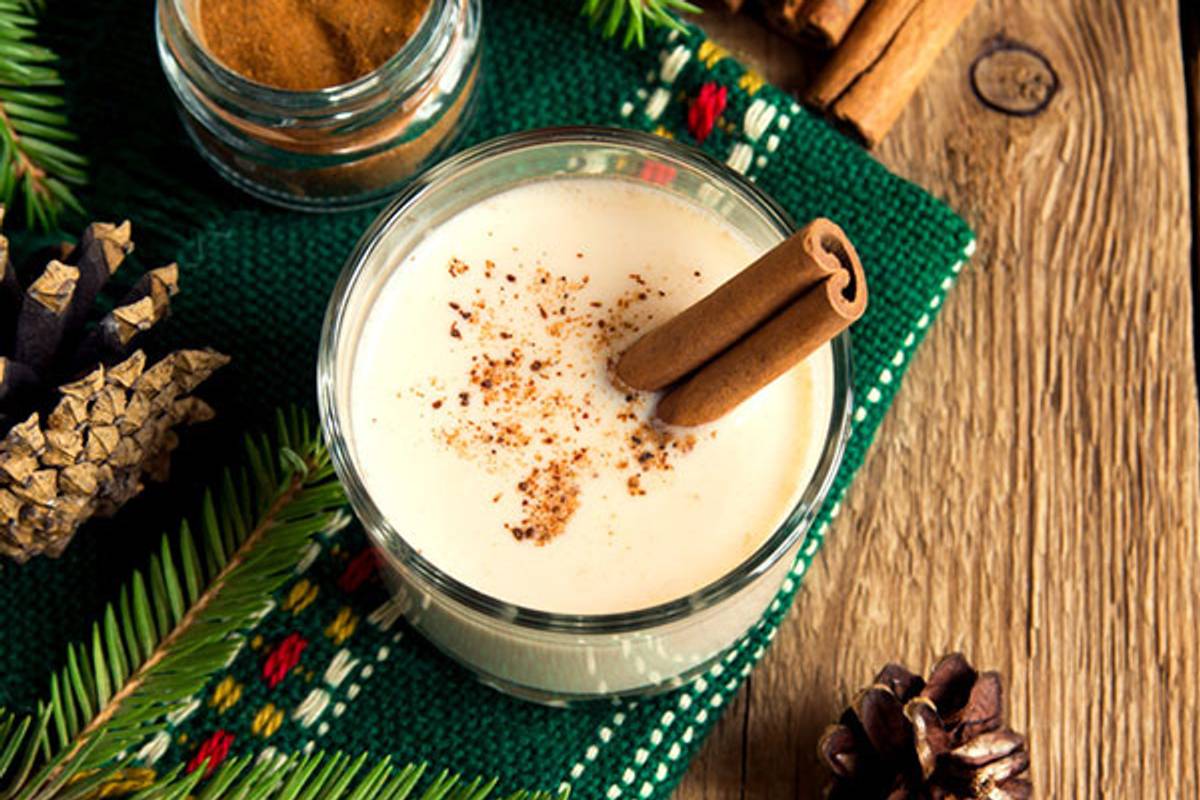From rich, golden eggnog to densely moist sweet potato pie, tempting food treats seem to be everywhere during the holiday season. No wonder many of us believe that, at this time of year, loading on lots of extra weight is inevitable.
Yet the average person gains only about one pound from November to January (those who are overweight gain more). The real problem: weight you add during the holidays tends to remain with you months later, accounting for more than half of annual gain.
The solution isn't to diet your way through the festive season. "It's important not to feel like you've deprived yourself. But there's a fine line between enjoying and overdoing," says Bethany Thayer, M.S., R.D., a spokesperson for the American Dietetic Association and a dietitian for Health Alliance Plan, the medical insurance arm of Henry Ford Health System, in Detroit.
Make your strategy simply to hold your weight steady. You can achieve that goal with help from your senses of taste, feel and smell.
Fooling your senses
Our senses often work against healthy eating by attracting us to sugary and fat-rich foods. Yet they also can be "fooled" into finding similar pleasure in sugar or fat alternatives that mimic the tastes we like so much, according to Lalita Kaul, Ph.D., R.D., L.D.N., a dietitian and professor of community health and family practice, Howard University College of Medicine in Washington, D.C.
When you heighten the sensory appeal of foods you prepare, serve and eat, your senses help you sail through the holiday season. You'll be able to reduce fat and sugar but still enjoy dishes that are as satisfying as traditional calorie-loaded favorites.
Focus on flavor
Is your downfall sweet or salty foods? Or both? "We naturally gravitate toward sweet because we have more sweet taste buds. And salt enhances the flavor of whatever you're consuming," says Thayer.
What's more, we build up an adaptation to both sweet and salty taste, she says, requiring greater amounts to attain satisfaction. Indeed, worldwide, the use of high calorie sweeteners has increased.
You can wean your taste buds gradually from wanting more sweetness or saltiness, but that takes time. To navigate the holiday eating ahead, these tips will help you cut sugar and salt, but still keep flavor appeal high:
- Vanilla and peppermint extracts bring out sweetness.
- Use spices such as ginger, cinnamon, nutmeg and mint, instead of added sugar, in vegetable dishes, sauces, and baked goods.
- Savory spices, such as oregano, basil, cilantro, rosemary, garlic and onion, are powerful flavor boosters that lessen the need for adding salt. Use on meats, fish, stuffings, sauces, soups and vegetables.
- Many stores sell bottled mixtures of spices and herbs for easy flavor enhancement.
- In order to get the strongest flavor from fresh herbs, the American Dietetic Association recommends adding them at the end of cooking and using more than you would with dried herbs.
- Highlight the natural taste of sweet potatoes with cinnamon and vanilla. Avoid canned ones that are packed in syrup. There's no reason to add extra sugar to this favorite holiday dish. If you must have marshmallows on top, use the mini-type, space them apart, and let them bake just briefly before serving (they melt faster than big marshmallows).
Feels like fat—but isn't
That tempting brownie on the holiday goodie tray has the right texture and taste—moist, rich and chocolatey. Yet the appealing "mouth feel" it has, usually due to calorie- and cholesterol-loaded fats, such as butter or shortening, might come from an unexpected source: beans.
Research shows that puréed cannellini beans (white beans) can be used to replace as much as 50 percent of the fat in brownies and dropped cookies while producing a treat that tastes very similar to the original—plus has added fiber and vitamins.
Fats give many foods the sensory qualities that make us want to eat them. We need some fat in our diet, but all are dense with calories. Saturated fats and trans fats also raise blood cholesterol, which increases the risk of heart disease. The Institute of Medicine recommends consuming as little saturated fats (found in meat and dairy products) and trans fats (in packaged baked goods) as possible.
You can fool your senses with healthier fat replacements that provide similar eating pleasure:
- Re-create family recipes with low-fat or nonfat dairy ingredients. Dr. Kaul suggests choosing low-fat yogurt, fat free half-and-half, and evaporated skim milk, instead of whole milk or cream versions of those products.
- Use healthier monounsaturated and polyunsaturated fats, such as olive oil, canola oil and corn oil, for cooking, baking and eating.
- Puréed fruits such as pumpkin, applesauce, or bananas, are excellent fat substitutes in baking. One fat-replacement product sold in groceries is simply puréed prunes, Thayer notes. She uses a can of pumpkin in a box of cake mix, with no added egg or oil, to make mini-muffins. "They're very moist," she says, "and you get the beta-carotene from the pumpkin."
- Taking fat out of Christmas cookies is a bit tricky, but possible. Fat helps retain moisture, so low-fat cookies should be eaten quickly or they'll dry out.
- To make an easy creamed soup without adding heavy cream or butter, purée an assortment of vegetables, then just add a little broth.
Three other great tips to keep from adding holiday weight:
- If you drink alcohol, set a one drink limit. When possible, dilute wine or liquor with water or seltzer. Beer, wine, liquor, and alcoholic mixed drinks (punches, coffee drinks, and such) are often packed with calories.
- Start with soup. Not only are most soups healthful, but having soup before a meal makes you feel less hungry and more satisfied. As a result, you avoid overeating, take in fewer calories for the whole day, and don't feel deprived.
- Buy low-fat or fat free eggnog. Most people won't notice any taste difference.







